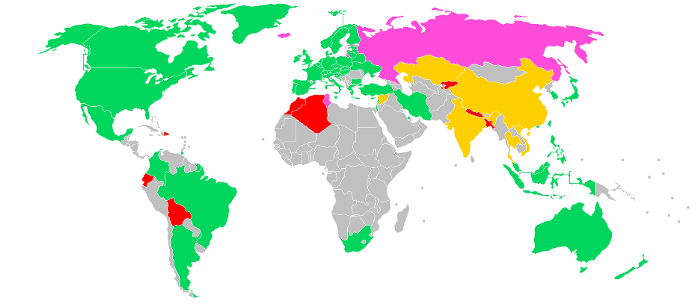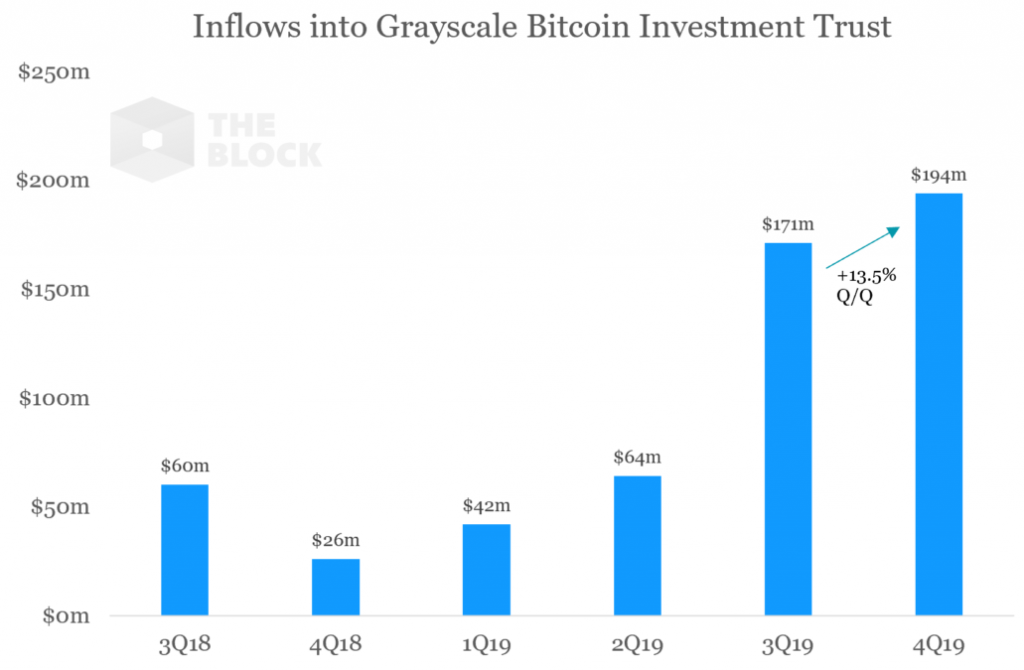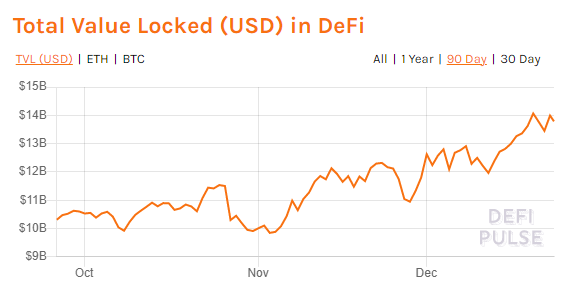
The decentralized finance industry has experienced impressive growth this year. The capitalization of the DeFi sector has grown 20 times: from $646 million to $14 billion. And the longer decentralized finance evolves, the more attention gets from institutional investors.
Of course, now the capitalization of a young industry cannot boast even approximately the same numbers as the traditional financial system. However, 20x growth in a year says a lot. And today we take a look at the major events of 2020 that have influenced decentralized finance, as well as talk about the prospects for DeFi in the eyes of institutional investors.
Crypto adoption has begun
According to a Fidelity Asset Management report, 80% of companies are considering investing in digital assets. At the same time, 36% of respondents have already invested in bitcoin.

Source: Bitcoin status in countries. Green – legalization, other colors – prohibition or restrictions
But what attracts companies and funds to blockchain assets? Fidelity has figured out that low transaction fees and low costs for holding digital assets are the main reasons for the interest of institutional investors. Especially if you compare these indicators with other investment areas.
But a number of problems, including the lack of transparent regulation, insurance, and reliable custodian services, have kept institutional investors away from the cryptocurrency market for a long time. Especially if you remember that over the past 8 years, assets worth over a billion dollars have been stolen from cryptocurrency exchanges.
A survey by cryptocurrency insurance company Evertas showed that 90% of institutional investors from the US and the UK are ready to increase the share of cryptocurrencies in their portfolio. However, the document argues that despite the growing popularity of investing in bitcoin to protect against inflation and currency devaluation, the lack of insurance in this area significantly slows down the process.
This is how Coinbase Custody was born – a solution for the safe storage of assets of institutional investors, including trust and pension funds. The American company Coinbase this year became the first cryptocurrency exchange to receive the status of a bank in the United States. Thus, it was possible to create a familiar proven model that works in American law, which has become a guide for institutional investors in the world of cryptocurrencies.
In 2020, digital asset trustee and security company BitGo launched Prime Trading and Lending, BitGo Portfolio and Tax. The new services are covering a significant number of the needs of companies that use cryptocurrencies. These solutions provide institutional investors with the same level of service that they are accustomed to in traditional markets. There are already 300 institutional clients using BitGo services.

The growth in demand for digital assets was also confirmed by the American company Grayscale Investments. Earlier, Grayscale announced plans to increase the share of Bitcoin and Ethereum in the investment portfolio. Interest in cryptocurrencies from Grayscale institutional clients has grown significantly.
Legislation also does not stand still. This summer the SEC approved a new investment product from Arca that combines Treasury securities with blockchain governance. For the first time, the SEC has allowed a project with cryptocurrency tokens to enter the investment markets.
Interest in decentralized finance
Over the past years, the interest of institutional investors has focused on bitcoins. But with the rapid development of the decentralized finance market, they are attracting more and more attention. The emergence of various derivatives and stablecoins that represented the value of Bitcoin with ERC 20-tokens make it possible to use them for loans and collateral. Although this direction of investment is associated with great risks, it allows investors to earn more than on the usual storage of bitcoins.
Cryptocurrency hedge fund Polychain Capital has already entered the TOP-10 holders of the YFI DeFi token. Polychain continues to actively invest in other DeFi projects, bringing institutional investors’ funds into the industry.
However, investing in decentralized finance remains very risky. And if private investors can take responsibility for their own funds, then fund managers are accountable to other people and organizations who entrust them with millions of dollars.

Source: Total Value Locked $13.79B
Recently, xSigma announced its plans to enter the decentralized finance market ( xSigma is a blockchain R&D lab that was created by ZK International, a publicly-traded company (NASDAQ: ZKIN)). xSigma’s first task will be to launch an exchange for decentralized trading of stablecoins. Therefore, when creating a DEX, xSigma pays most attention to the development of market-making mechanisms. The main goal is to make it as stable as on centralized exchanges. But a year after the launch of the exchange, the xSigma team is going to release its own stablecoin, which will become the basis for the future decentralized ecosystem. The company is going to continue to develop ideas that promote decentralized finance.
Some companies are already starting to actively develop DeFi solutions to make the industry safer and more attractive to institutional investors. Cryptocurrency secure storage provider Trustology has launched a DeFi firewall to use decentralized protocols with smart contract security controls. Quantstamp helps protect against the security risks of smart contracts. And the Chicago DeFi Alliance recently launched the Liquidity Launchpad to bring “informed and professional players” into the DeFi space.
Tags
Create your free account to unlock your custom reading experience.

